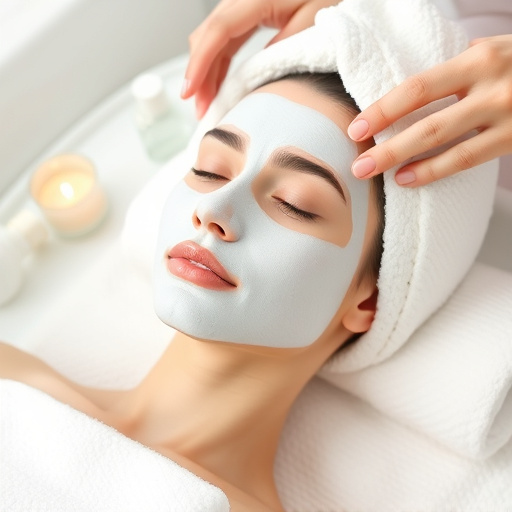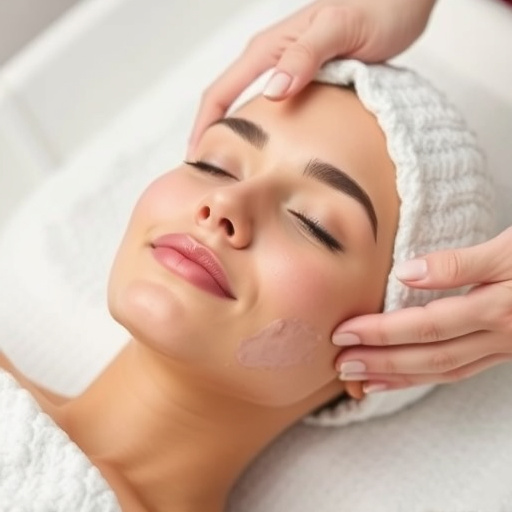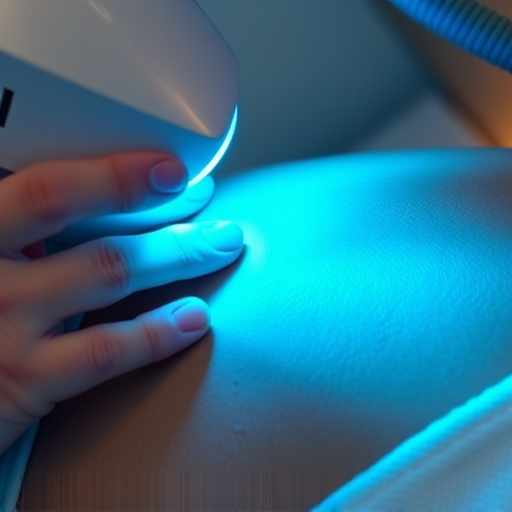Eczema skincare treatment focuses on restoring skin barrier function, reducing inflammation, and preventing infections. Personalized routines with gentle cleansers, humectants, and topical corticosteroids manage symptoms and improve skin health. Consistency is key for visible improvements and infection risk reduction. Specialized treatments like chemical peels and skin tightening enhance protection against infections.
Eczema, a chronic skin condition marked by dry, itchy, and inflamed skin, affects millions globally. Beyond discomfort, it weakens the skin’s natural barrier, making individuals more susceptible to infections. This article delves into understanding eczema and its impact on skin health. We explore evidence-based eczema skincare treatments that not only alleviate symptoms but also significantly reduce the risk of skin infections. By adopting these strategies, those with eczema can achieve better skin health and quality of life.
- Understanding Eczema and Its Impact on Skin
- Skincare Routine for Effective Management
- The Role of Treatment in Infection Prevention
Understanding Eczema and Its Impact on Skin

Eczema is a chronic inflammatory skin condition that affects millions worldwide. It’s characterized by dry, itchy, and irritated skin, often leading to rashes and blisters. This condition can significantly impact an individual’s quality of life, causing discomfort and even psychological distress. The skin affected by eczema tends to be more susceptible to infections due to its compromised barrier function, making the management of this condition crucial for overall skin health.
Understanding the severity and potential complications of eczema is essential when considering effective eczema skincare treatment. Beyond addressing symptoms, these treatments aim to restore the skin’s natural protective barriers, reduce inflammation, and minimize the risk of infections. By adopting personalized skincare routines that incorporate gentle cleansers, humectants, and topical corticosteroids, individuals can achieve better control over their eczema, enhancing overall skin health and well-being. This proactive approach is particularly significant in preventing secondary infections, ensuring a healthier and more comfortable life for those living with this condition.
Skincare Routine for Effective Management

Managing eczema effectively requires a consistent skincare routine tailored to your needs. A good starting point is to incorporate gentle, hydrating cleansers and moisturisers into your daily regimen. Avoid harsh chemicals and fragrances that can irritate the skin further. Opt for clothing made from natural fabrics to prevent friction and discomfort. Regularly exfoliating dead skin cells helps remove buildup and allows better absorption of eczema skincare treatments.
For advanced management, consider customized facials that target specific areas affected by eczema. These professional treatments can include gentle exfoliation, deep hydration, and even light therapy to reduce inflammation and alleviate symptoms. Additionally, focus on achieving and maintaining optimal skin barrier function through regular use of emollients and humectants. This not only helps prevent moisture loss but also strengthens the skin’s natural defence against infections. Remember, consistency is key; stick to a reliable eczema skincare treatment plan for visible improvements and a reduced risk of skin infections.
The Role of Treatment in Infection Prevention

Eczema skincare treatment plays a pivotal role in preventing skin infections by addressing the underlying conditions that make the skin vulnerable. Regular and consistent use of prescribed moisturizers, emollients, and topical corticosteroids can significantly reduce inflammation and maintain the skin’s natural barrier function. This creates an environment unfriendly to bacteria, viruses, and fungi, thereby lowering the risk of infections such as impetigo or cellulitis.
Furthermore, specialized treatments like chemical peels and medical spa services can offer additional benefits. Chemical peels, for instance, help exfoliate the skin, removing dead cells and allowing better penetration of topical medications. Skin tightening procedures, though not a primary focus for eczema management, may also contribute to overall skin health by improving texture and reducing folds where irritants could accumulate, further protecting against infections.
Eczema skincare treatment plays a pivotal role in not only managing symptoms but also significantly reducing the risk of skin infections. By implementing a consistent and effective skincare routine, individuals with eczema can achieve healthier, stronger skin barriers, which are essential for protecting against pathogens. Through regular cleansing, moisturizing, and the use of prescribed topical treatments, those affected by eczema can actively prevent potential infections and promote overall skin health.














